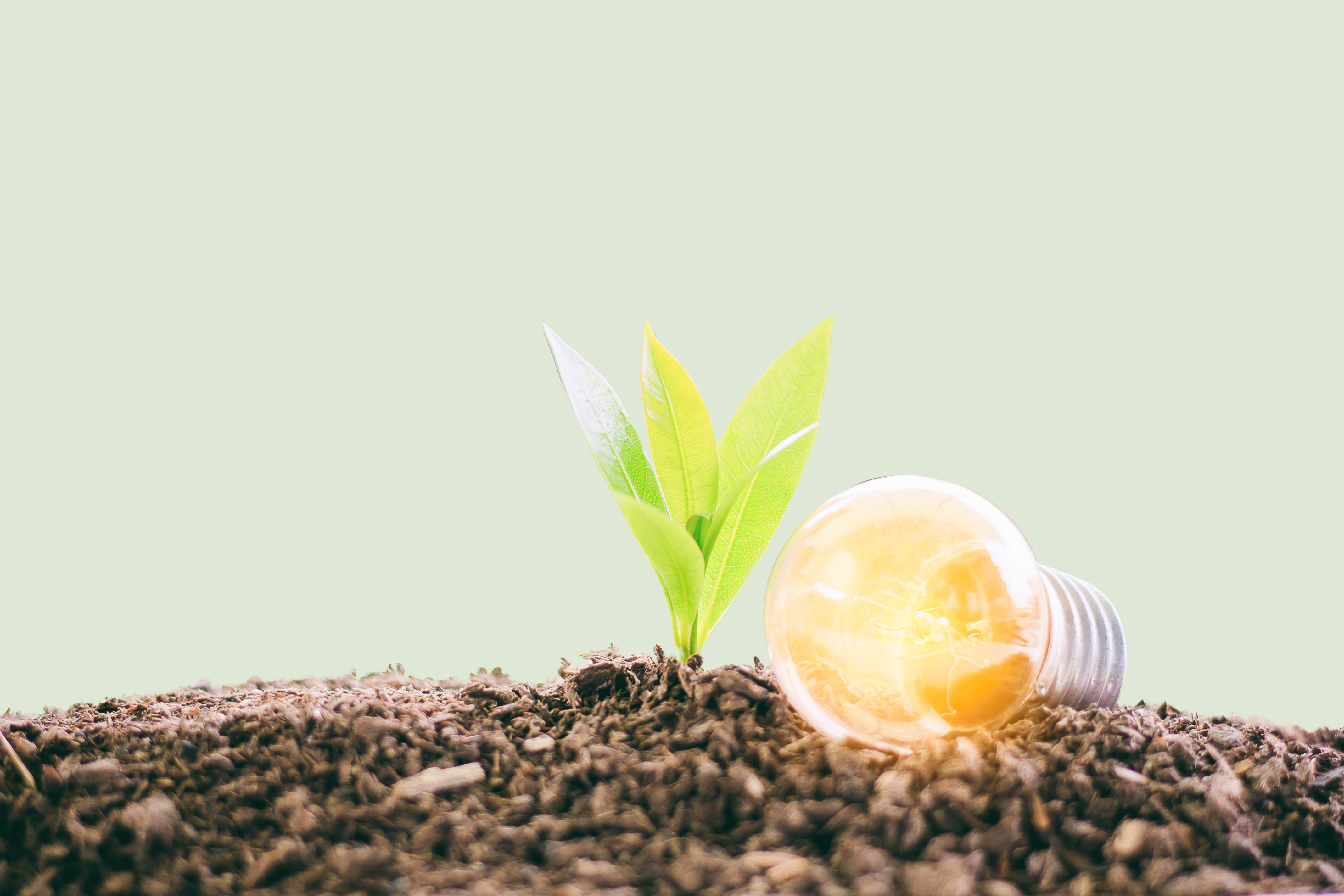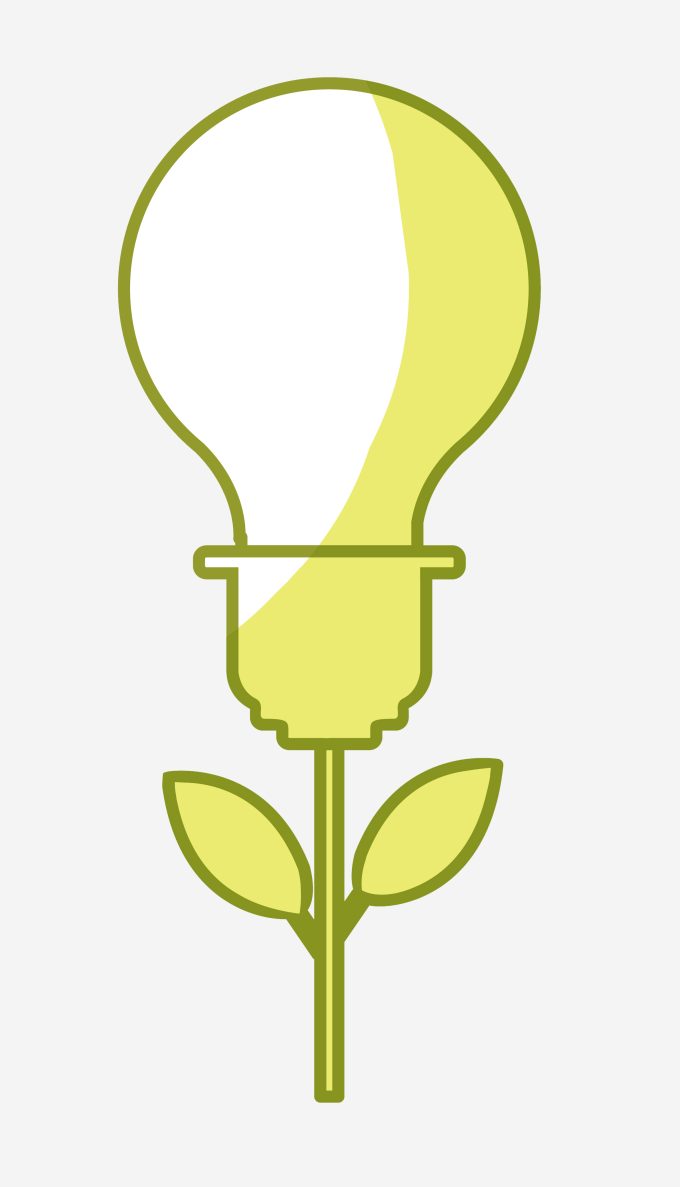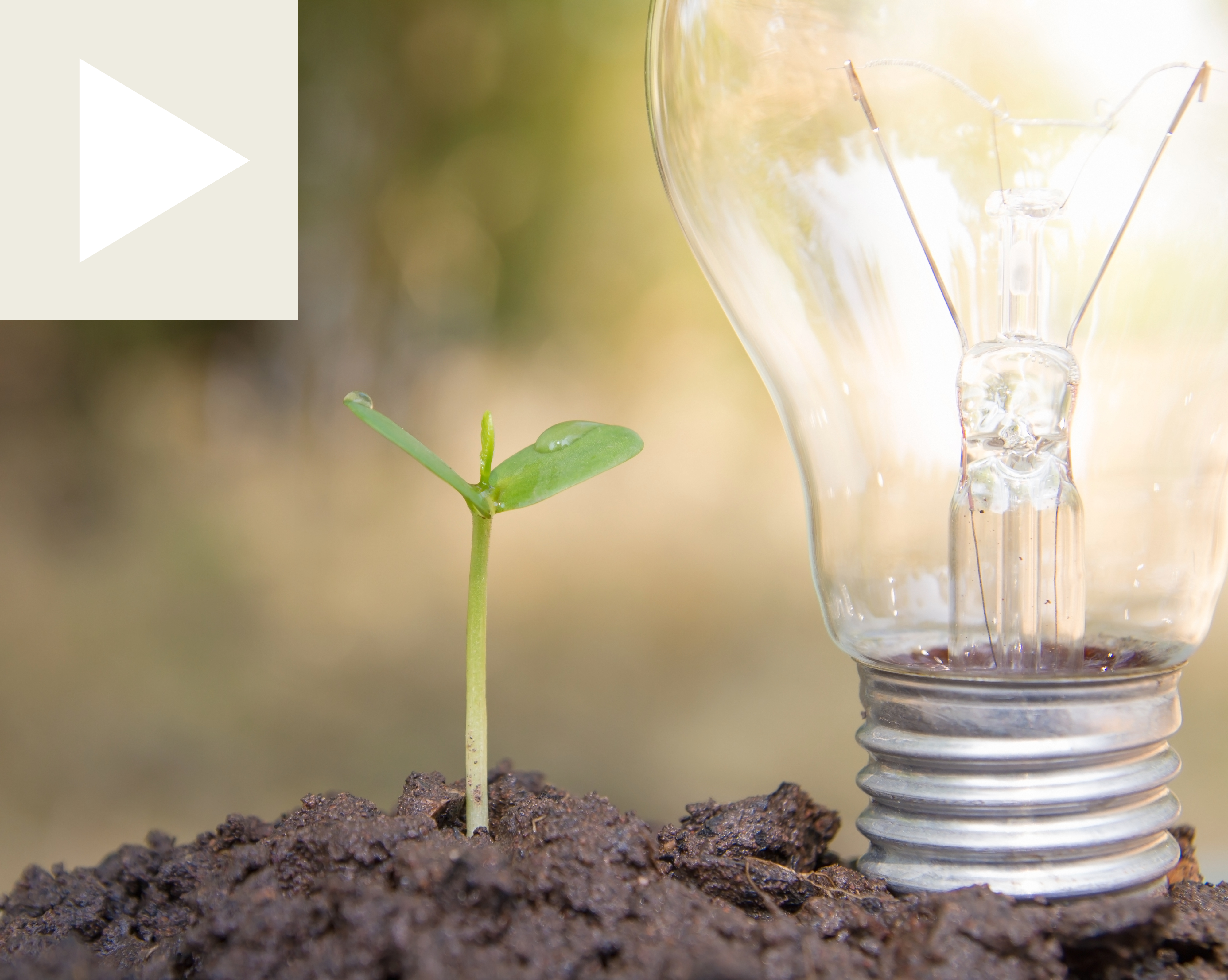stories on progressPlant-e makes electricity from living plants.
January 1, 2024

 An introduction.
An introduction.
Plants could soon provide our electricity. In a small way they’re already doing that in research labs and greenhouses at project Plant-e.
Plant-e is a university and commercially sponsored research group at Wageningen Univ. + Research in the Netherlands.
The Plant Microbial Fuel Cell from Plant-e can generate electricity from the natural interaction between plant roots and soil bacteria.
How it happens.
It works by taking advantage of the up to 70 percent of organic material produced by a plant’s photo-synthesis process that cannot be used by the plant — and is excreted through the roots.
As natural occurring bacteria around the roots break down this organic residue, electrons are released as a waste product. By placing an electrode close to the bacteria to absorb these electrons, the research team — led by Marjolein Helder PhD — is able to generate electricity.
quote ::
name: by Marjolein Helder PhD
bio: A researcher, botanist, and environmentalist.
school: Wageningen Univ. + Research
Solar panels are making more energy per square meter — but we expect to reduce the costs of our system technology in the future. And our system can be used for a variety of applications.
Our tech is making electricity — but also could be used as roof insulation or as a water collector. On a bigger scale it’s possible to produce rice and electricity at the same time, and in that way combine food and energy production.
— Marjolein Helder PhD
Uses for this valuable tech.
Plant Microbial Fuel Cells can be used on many scales. An experimental 15 square meter model can produce enough energy to power a computer notebook.
Currently Plant-e is working on a system for large scale electricity production in existing green areas like wetlands and rice paddy fields.
A first prototype of a green electricity roof has been installed on one building at Wageningen Univ. + Research — and researchers are keeping a close eye on what is growing there. The first field pilots will be started in 2014. The tech was patented in 2007.
After 5 years of lab research: Plant-e is now taking the first steps toward commercializing the technology. In the future, bio-electricity from plants could produce as much as 3.2 watts per square meter of plant growth.
note: with materials from EuroNews
webpages ::
group: Plant-e
web: home ~ channel
banner: Spark of nature.
Plant-e is making electricity from living plants.
read :: brochure
format: Adobe
presented by ::
school: Wageningen Univ. + Research
web: home ~ channel
banner: Exploring nature’s potential to improve quality of life.

watching
How plants can create electricity. :: watch
part 1 :: Meet Plant-e.
part 2 :: A story on Planet-e.
part 3 :: Living plants generate electricity.
part 4 :: The power of plants.
K keyboard mouse IMAGE
reading
1. |
school: Wageningen Univ. + Research
story: Dutch Innovation Award for Plant-e
read :: story
research institutes:
for plant research :: visit
centre for development innovation :: visit

